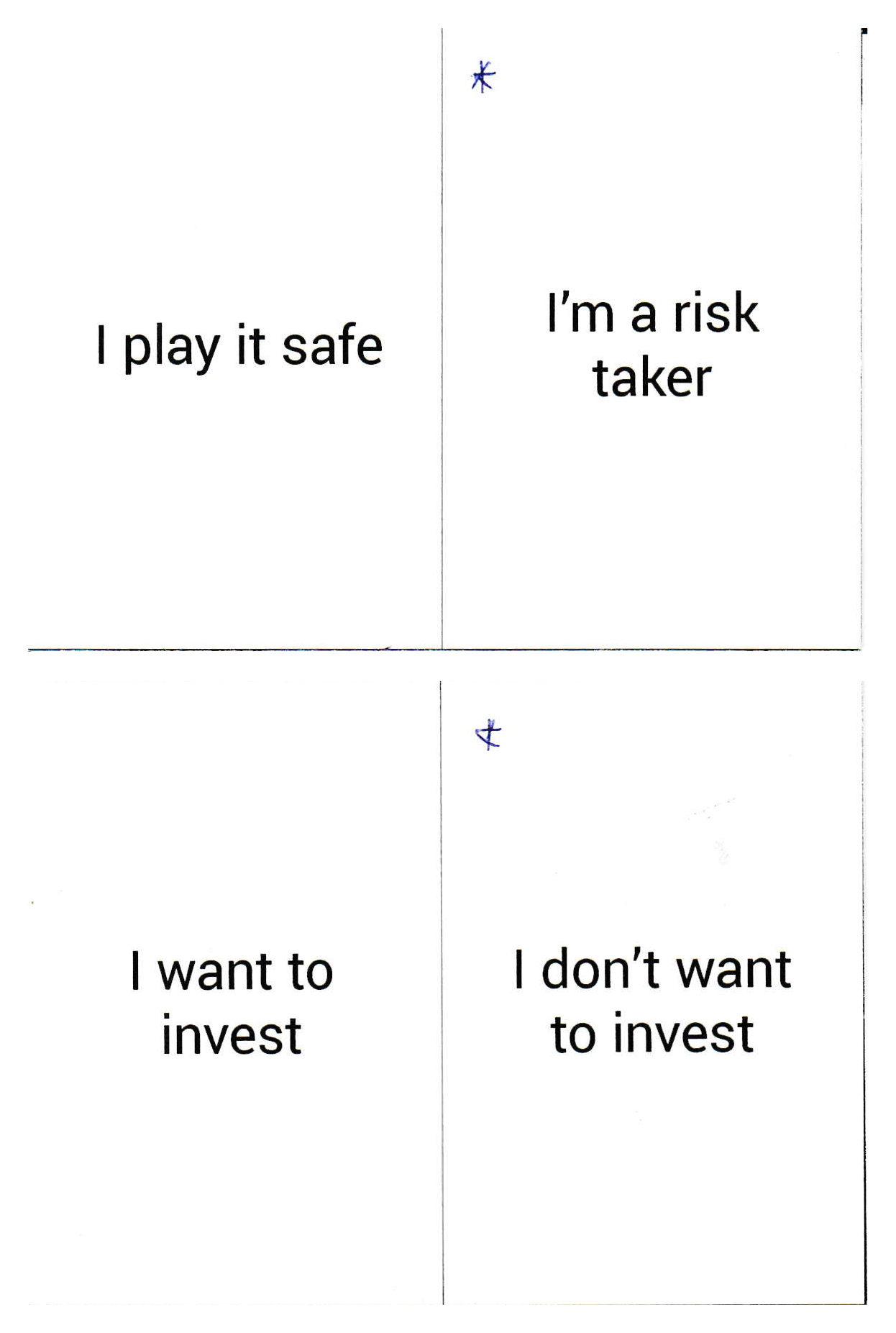DESIGN PROBES
Design Probes refers to a self-documentation method where users observe and reflect on their everyday lives and experiences, followed by documenting them.
Popular tasks that Design Probes can have are: photography (disposable camera or phone camera), diary writing for daily patterns and emotions (workbook, stickers etc.), open-ended questions (postcards), social mapping (map or workbook), to name a few.
Designers carefully design tasks and tools of the Design Probes to fit the project aim, package them and deliver them to the users. Design Probes tasks provoke users to think about their life which includes the past, the present and the future, as well as their concerns and values. The users will be able to express these self-observations and reflections through the given tasks and tools. This process allows designers to have an access to users’ subjective interpretations on their lives; areas that designers cannot enter.
Originally developed by Bill Gaver and his colleagues in RCA in late 90s, as Cultural Probes, Design Probes was introduced by Tuuli Mattelmäki, by tuning Cultural Probes to better fit in the context of Human-Centered Design.
Design Probes is not an off-the-shelf method that has a fixed format, but should be re-designed according to specific contexts of each project. Through this process of making the probes and interacting with users, designers are able to build an empathic understanding of the users.
We share the examples of Design Probes, designed by NUS DID students in SDL’s past projects, in order to give inspiration to designers and students.
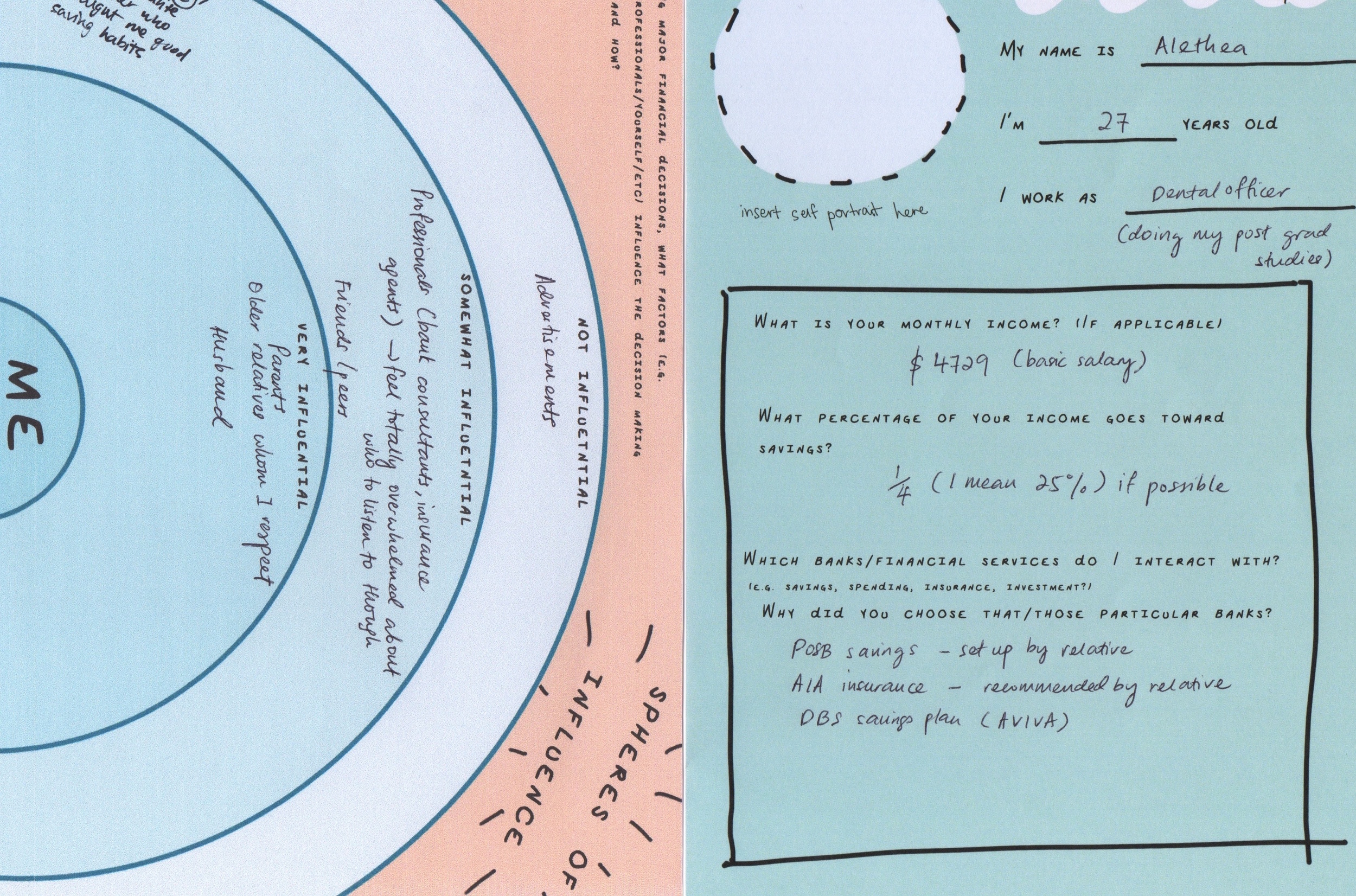
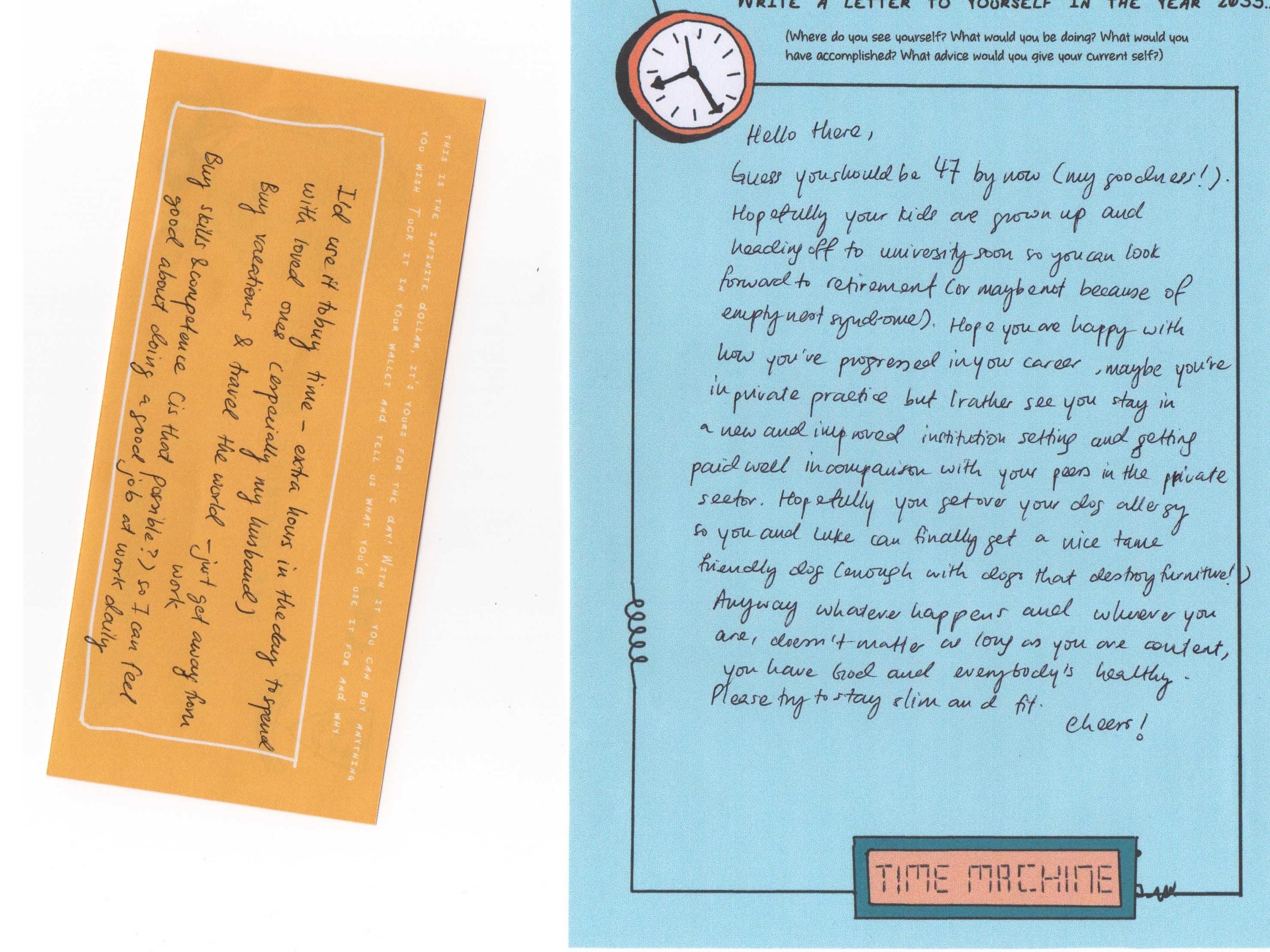

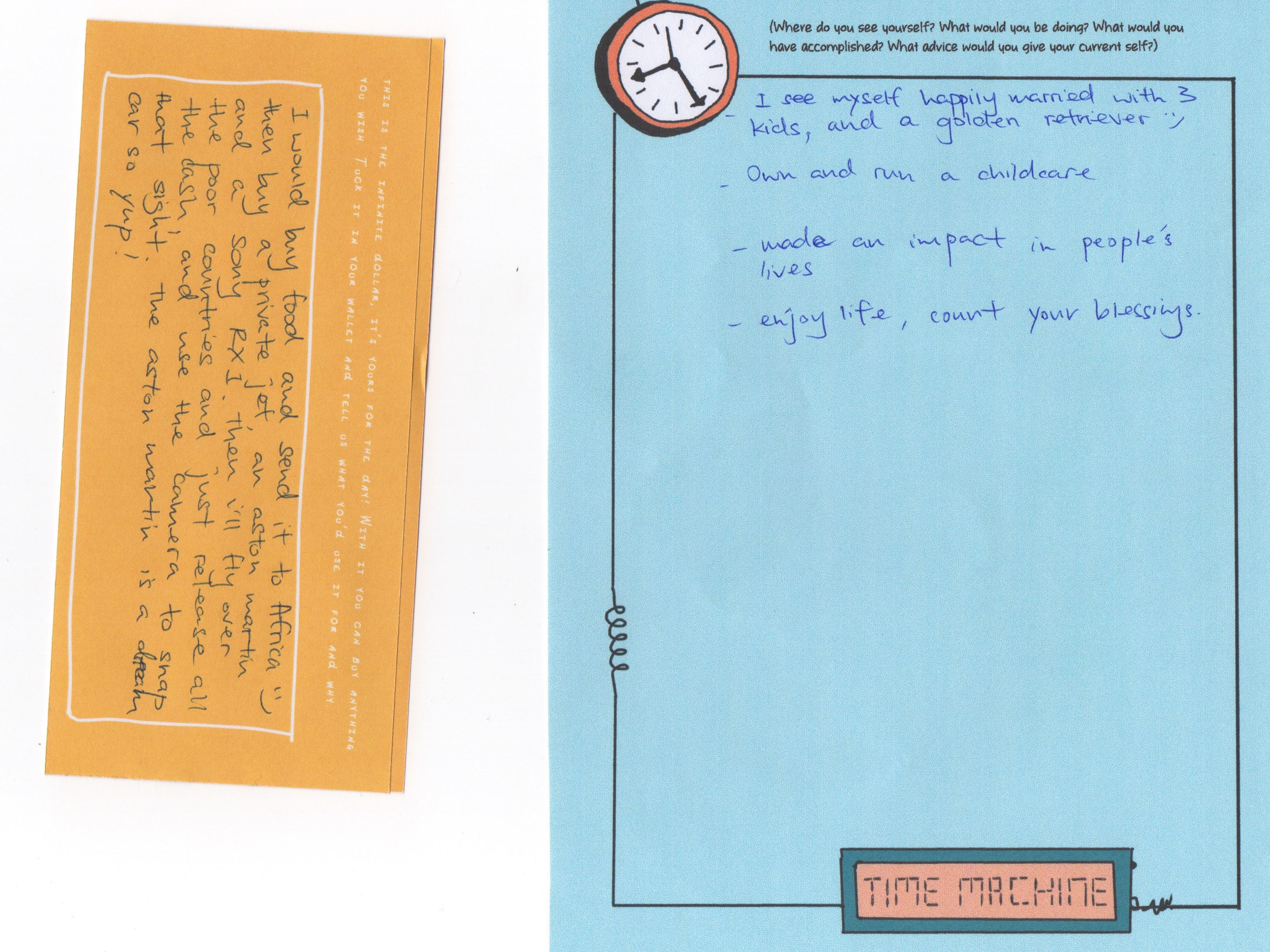
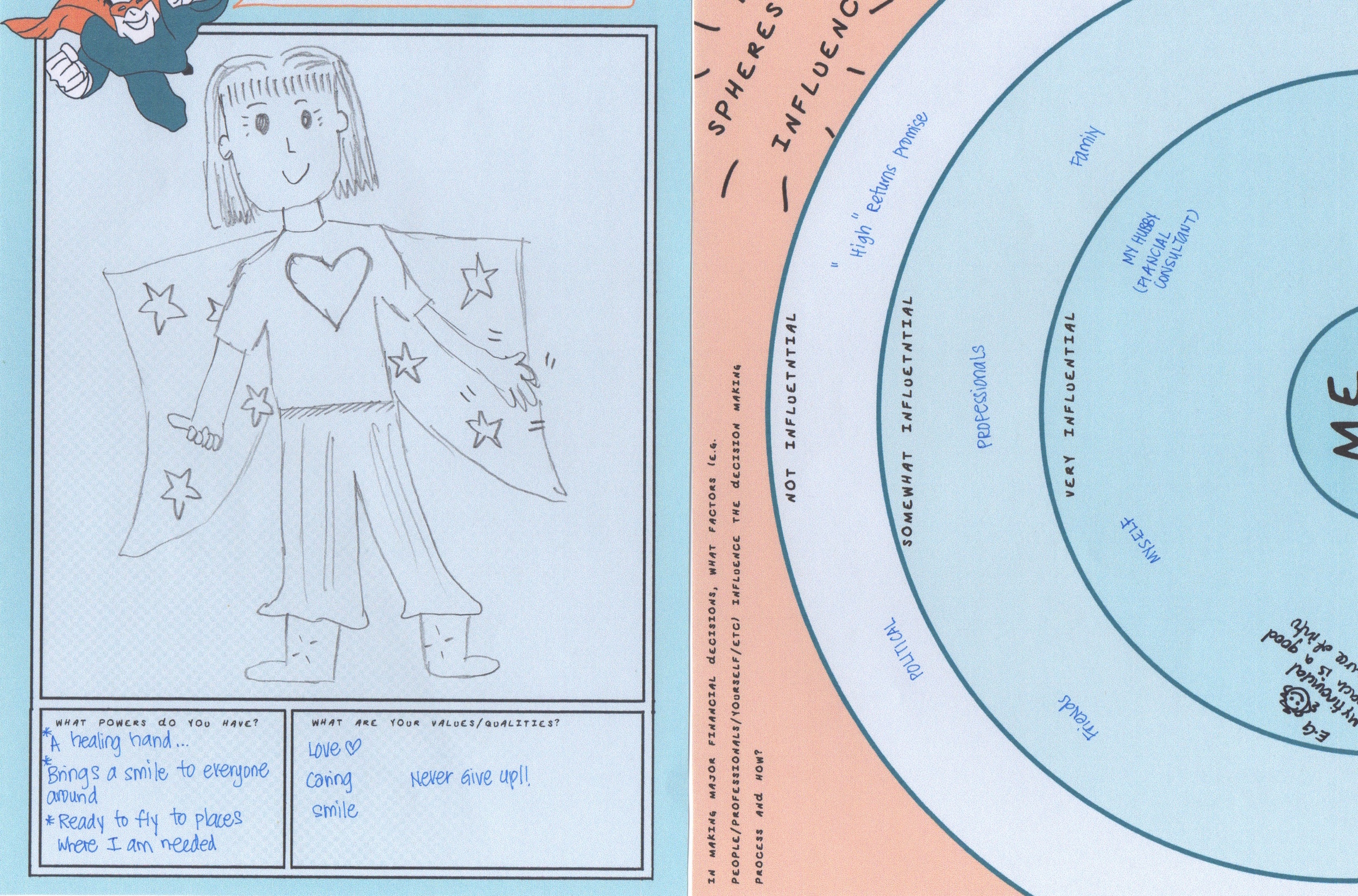
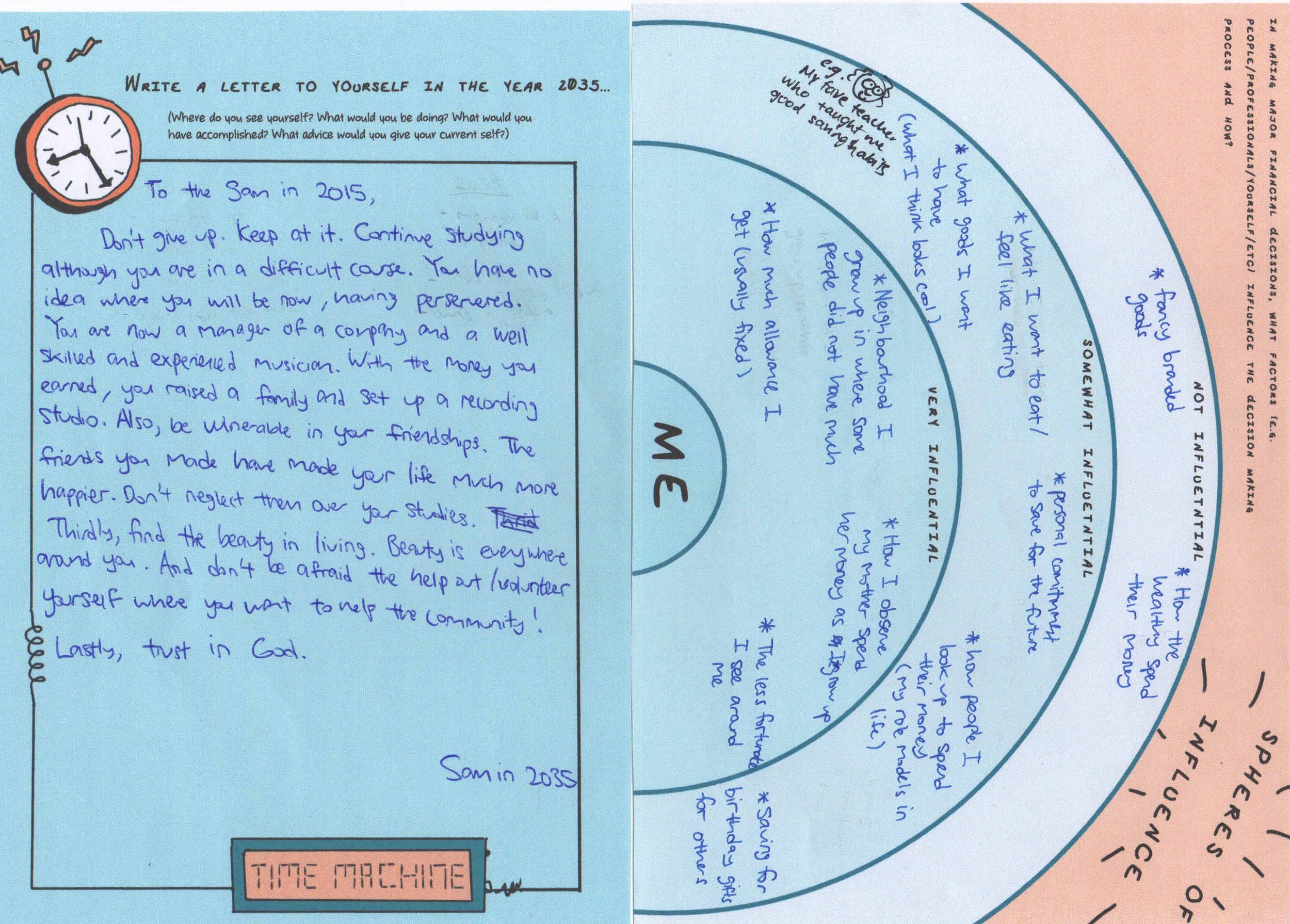
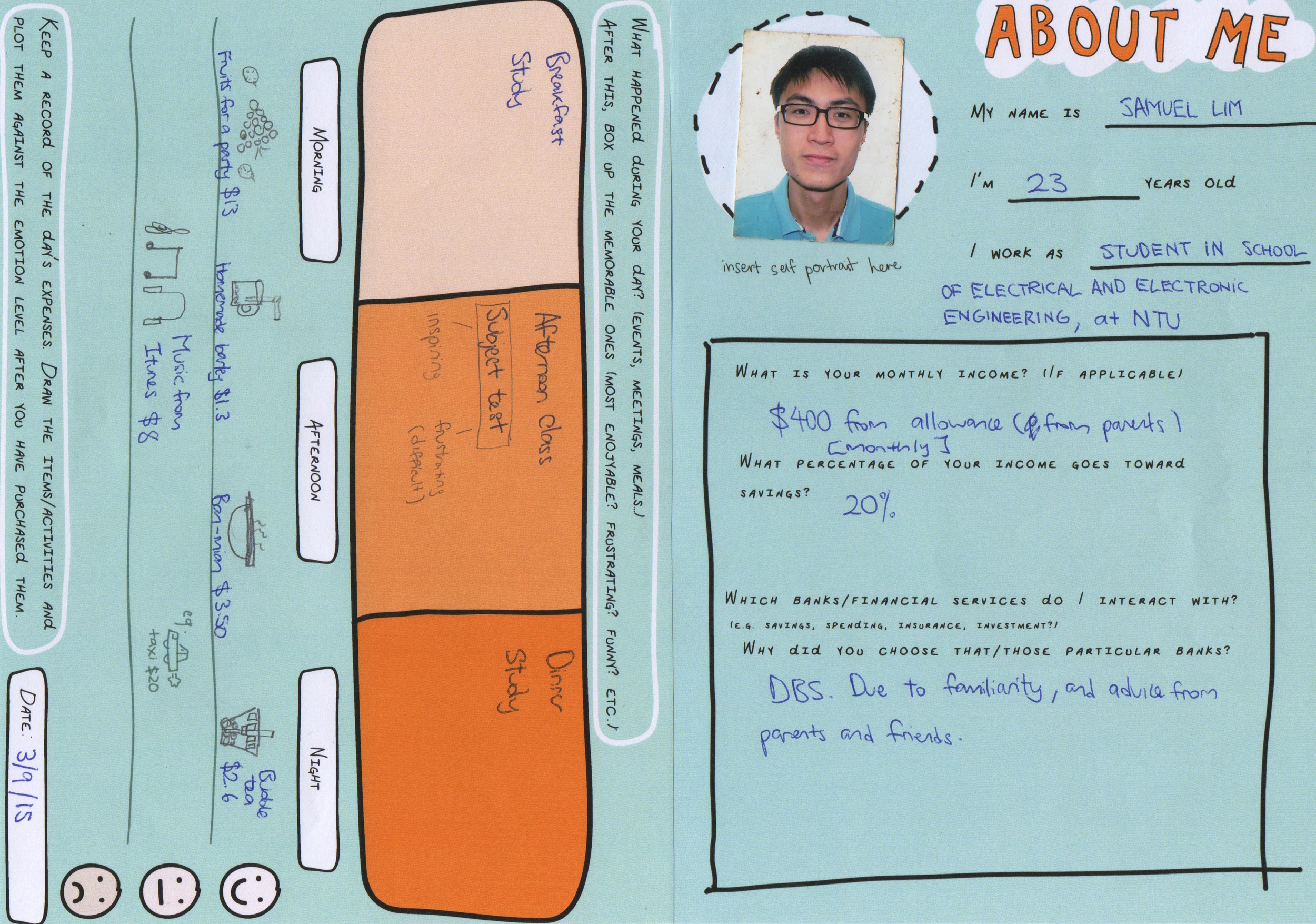

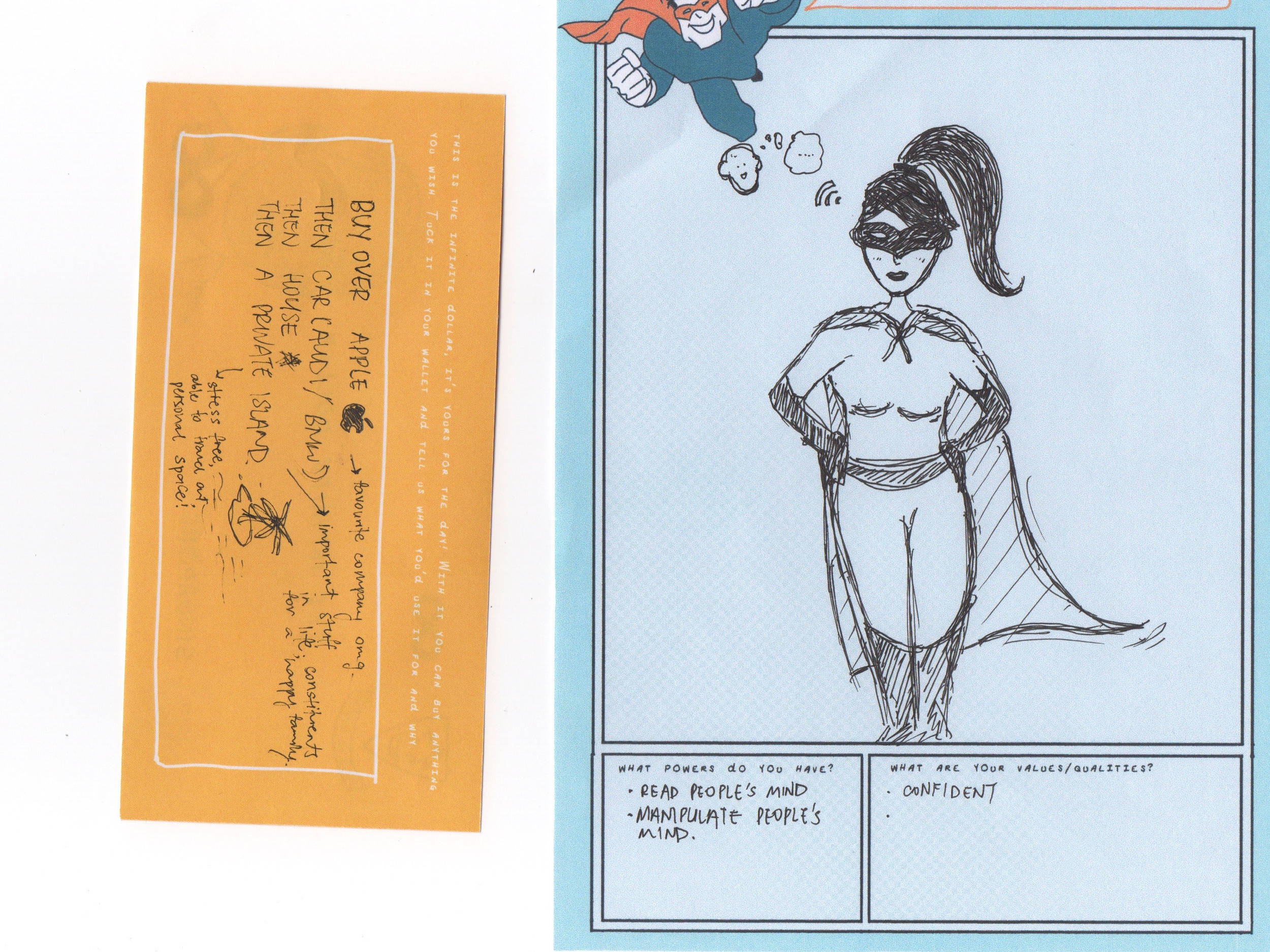
YIPPEE
In our probes, the group included a mix of fun and serious activities for the users to do in their free time over the course of 5 days. These activities included 'Spheres of Influence, Infinite Money and Super-hero Me, amongst others'. Though some activities seemed irrelevant to the users in terms of banking, we were able to get insights from their answers as they revealed a peek into their daily lives, thoughts and dreams.
Through our design probes, we were able to gather that young working adults as a majority are not investing their savings because of many misconceptions toward investing. Thus, we set out to design a platform to demystify investments for young working adults.
YIPPEE is an app that helps young adults with no prior investment knowledge to navigate their way in this field, in the friendliest way possible. YIPPEE bridges the gap between non-OCBC customers and their existing investment initiatives for young adults (Young Investors Programme), covering investment theory, misconceptions, tips and practical advice.







OCBC BLUEPRINT
There were several key objectives for creating the design probes, with future banking and young working adults in mind. These objectives were: Daily Life (habits, activities), Self (values, needs, priorities), Future (expectations, hopes) and Finance (habits, knowledge, plans). Our target group was young working adults, with a focus on exploring differences between short-term and long-term working adults (less or more than 3 years). With these objectives in mind, we set out to create a design probe package for each user.
Our design probe package consisted of one activity book and five daily packets. Each daily packet consisted of several different activities.




FAMILY 3
To find out what the priorities of young working adults are, the group found interviewees that ranges from undergrads to young working adults with 1-3 years of work experience. Interviewees were tasked to rank their current & future priorities by pasting and naming a variety of stock images that were given to them. They will need to name the images as they represent different meanings according to the individual.
One key finding is that the current priorities of undergrads were of “self-fulfilment” such as holiday, food and entertainment while their future priorities were centred around family-planning which were similar to the priorities of the young working adults. As one becomes a young working adults, they develop a greater sense of responsibility where it is no longer about themselves and more about family planning.
To find out why interviewees rank their priorities in a certain way, further in-depth interviews via the phone were conducted. It is a way to clarify any doubts the group might have and to ensure their findings and conclusions are true.




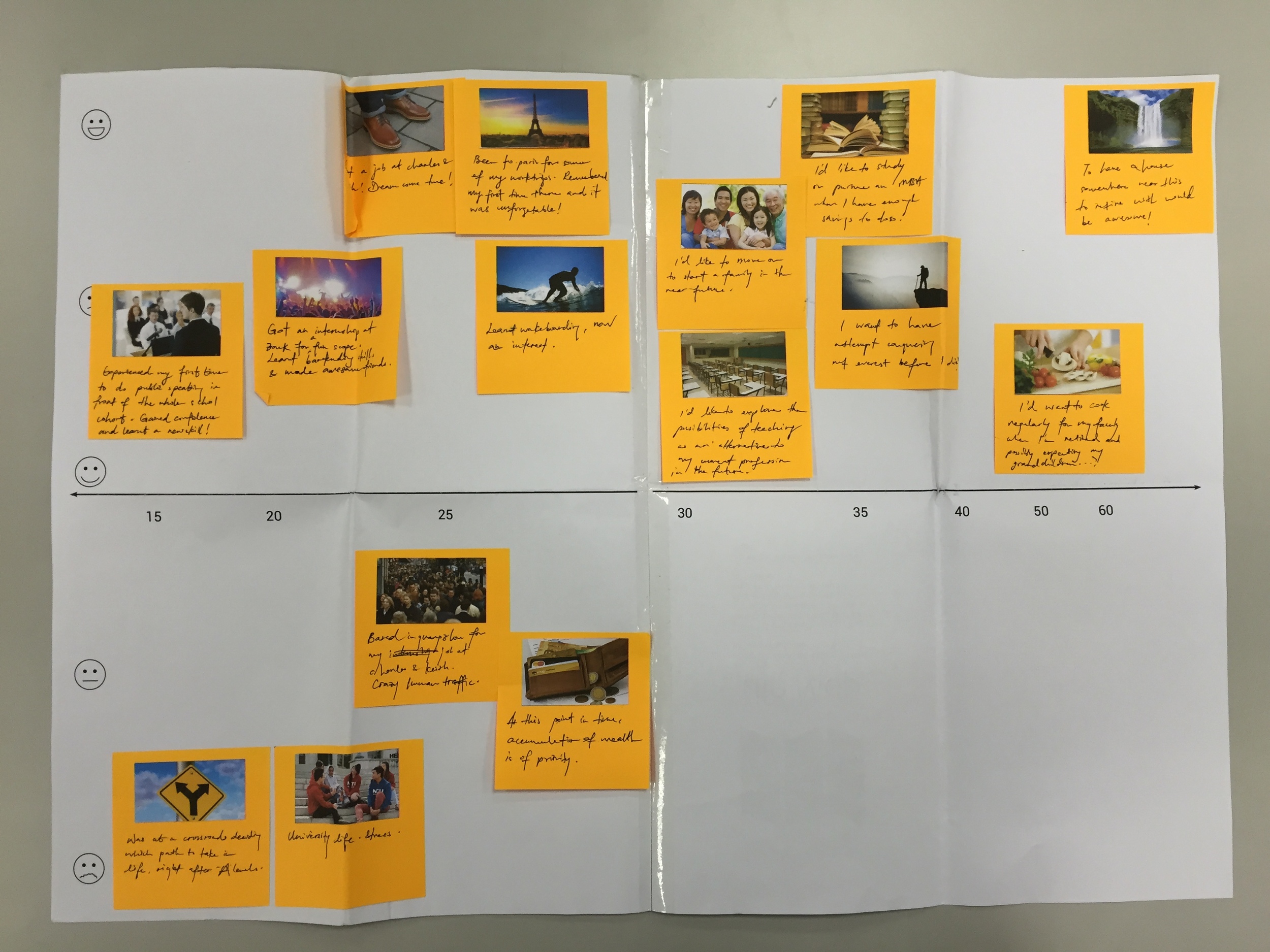

LIFE JOURNEY MAP
RETHINKING THE BANKING EXPERIENCE- The millennial behaves differently from the other generations especially in terms of their needs and demands. New insights are necessary to generate innovation for the banking industry to maintain and provide better services.
Users were given a set of photos and were tasked to choose a photo and list down how they felt, or what mattered most to them at different stages of their lives. This activity was useful as we uncovered that personal development, family and friends are valuable to this generation.
Thus, we designed OCBC Grow. A redesigned reward system with a platform that helps young working adults enjoy personal growth towards both professional and lifestyle goals, through trusted partners. In addition, family and friends are integral in this new service. Banking is not just about finances anymore. It is about the complete growth of their customers. Whatever matters to them, matters to us




ENVISION
This design probe aimed to develop a better understanding of the financial habits and goals that young working adults have and also on how they go about achieving them. It was also a way to discover young working adults’s social identity and the financial activities that were associated to it. Unlike traditional design probe, Facebook was used as a platform to attain our findings because social media is a part of every young working adults’ lives. Through the use of this digital probe, significant insights regarding the young working adults’ financial habit were pinpointed.
